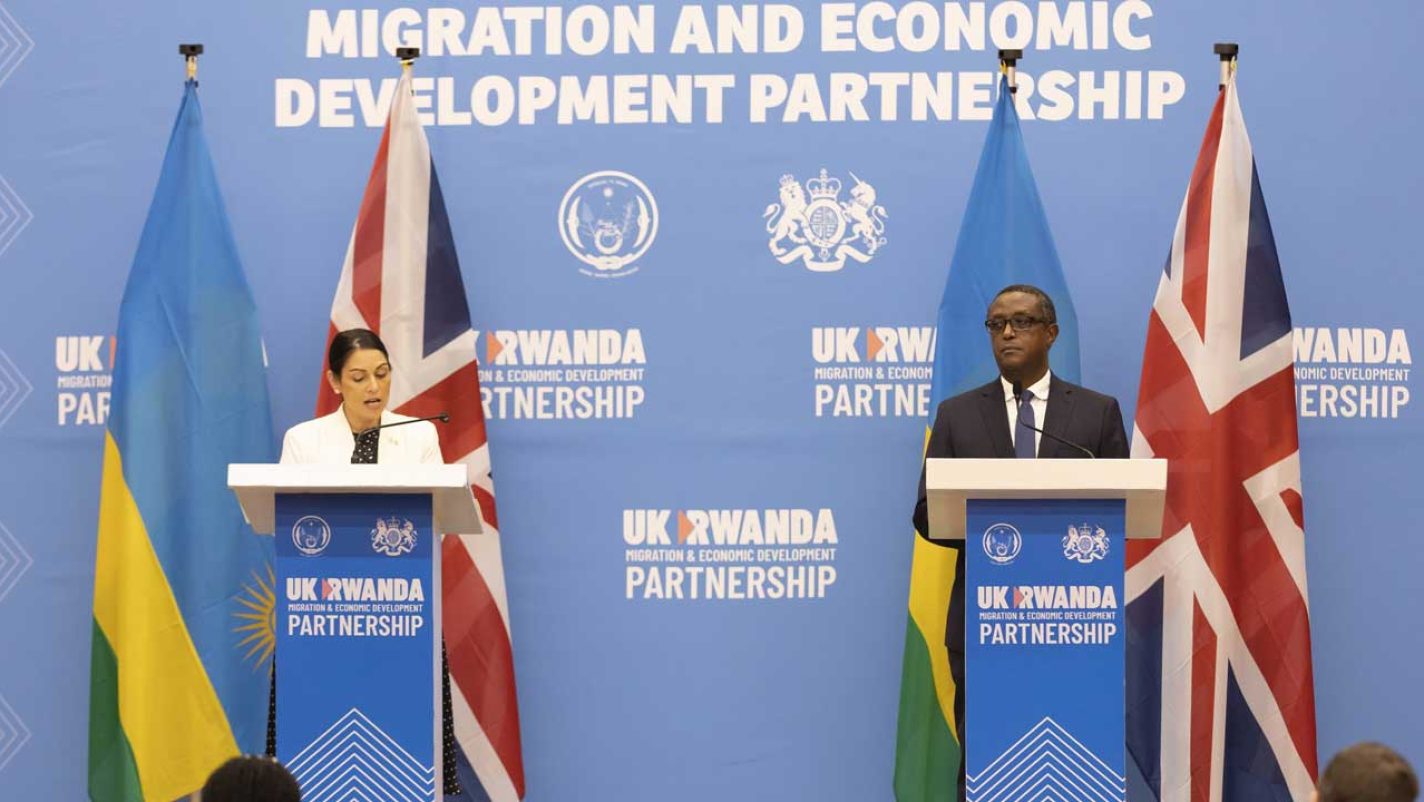By Editorial Board
Against the background of an agonising history of slavery and colonisation, and continuous exploitation by the West, African countries have continued to submit to the whims and caprices of western exploitation. Early last month the contradictory dynamics of the Rwanda-United Kingdom (UK) asylum deal came to dominate international public sphere due to litigation in the Royal Courts of Justice in London, UK, over a planned deportation of asylum seekers from the UK to Rwanda. Indeed Jonathan Swift, a UK Judge had refused request for an injunction to block the removal of Iraqi and Syrian asylum seekers bound for Rwanda. The judge argued that “There is a material public interest in the Home Secretary (Priti Patel) being able to implement immigration decisions.” He further argued that some of the risk facing the deported asylum seekers canvassed by the charity organisation were inconsequential and “in the realms of speculation.”
However, the European Court of Human Rights (ECHR) upended the decision of the British court to the effect that the asylum seeker should not be deported to Rwanda as the judicial review process had yet to be consummated. According to the ECHR, “the European Court has indicated to the UK Government that the applicant should not be removed to Rwanda until three weeks after the delivery of the final domestic decision in his ongoing judicial review proceedings.” As a consequence of the ECHR’s pronouncement, the move to deport the irregular migrants on the UK soil to Rwanda through the instrumentality of a wicked deal with Rwandan government came, at least, to a temporary halt.
It would be recalled that last April, Rwanda and UK signed a £120 million deal on asylum swap. According to the UK Home Office, the deal was “designed to dis-incentivised dangerous and unnecessary journeys such as small boat crossings, save lives and prevent injuries” and by extension, fixes the UK’s immigration system. This is a case of transferring the problem of an advanced European country to a poor struggling country in East Africa, majority of whose citizens still lived on less than $2 per day.
It is to be noted that from the beginning, opposition from well-meaning organisations and personality had dogged the deal. To be sure, refugees and activists from Rwanda and the DRC say the deal could have serious implications for Congo-DRC and the East and Central Africa. Also, Enver Solomon, Chief Executive of the Refugee Council, Filippo Grandi, UN Refugee Chief, Justin Welby, Archbishop of Canterbury, and Prince Charles, heir to the British throne, have all condemned the deal describing the action as appalling, nasty and abdication of responsibility by a sovereign state.
But in what appeared a case of crying more than the bereaved, the Rwanda government has welcomed with open arms the deal and enthused that it was a right step in the right direction. An apologia came from Vincent Biruta, the Rwandan Foreign Affairs minister, who noted that his country had a responsibility to cater for refugees. In his words, “This partnership builds on Rwanda’s strong record of providing safety to those fleeing (from) danger, with our country currently providing sanctuary to over 130,000 refugees from multiple countries – including vulnerable migrants evacuated from Libya, Afghanistan and neighbours like the Democratic Republic of Congo and Burundi.”
Why no continental or regional organisation has seen the matter from a pan-Africanist perspective is confounding. The refugees that are to be moved to Rwanda are not Rwandans but Albanians, Iraqis, Iranians and Syrian among others. The sinister plot of Paul Kagame’s regime in Rwanda appears to aim at altering the demography of Rwanda in ways that would neutralise the Hutu majority who are currently repressed by his government’s policies and then maintain Tutsi hegemony in perpetuity. This bodes ill for a region already mired in crisis with such rebel movements like the Tutsi-led M23 and the Hutu-led Democratic Forces for the Liberation of Rwanda (FDLR). While the policy undermines the integrity of the indigenous peoples of Africa, unbeknown, the current process is only preparing the ground for future genocides.
Africa does not hold the key to the solution of irregular migration to the UK despite the view of Boris Johnson (outgoing British PM) that “It’s very important that the criminal gangs who are putting people’s lives at risk in the Channel understand that their business model is going to be broken.” The refugee crisis is a product of an unjust global socio-economic order. The outgoing PM should heed the appeal of the archbishops to the effect that “Our Christian heritage should inspire us to treat asylum seekers with compassion, fairness and justice, as we have for centuries,” and not heap the burden on a third country. There is an inherent human right question in the matter. It exists at two levels. To deport refugees to a country not of their origin and choice is a fundamental violation of human rights. But in this instant case of the receiving country, Rwanda is guilty of human rights violation. As observed by Human Rights Watch, “serious human rights abuses continue to occur in Rwanda, including repression of free speech, arbitrary detention, ill-treatment and torture” under the canopy of measures to prevent hate speech and avoid future genocide.
It is time to call the bluff of the British government and its evil design in the continent.

